'Nothing agreed' at Stormont welfare crisis talks
- Published
Theresa Villiers said that without agreement on welfare, a budget at Stormont was unsustainable
Talks about Stormont's welfare reform crisis, chaired by Northern Ireland Secretary Theresa Villiers, have ended for the night.
It is understood the parties have agreed to meet again for further talks.
One source said the parties had set out their differing positions on welfare but there had been nothing of substance agreed.
Ms Villiers said earlier that Sinn Féin's decision to withdraw support for the welfare reform bill was a setback.
However, speaking before going in to the talks, Martin McGuinness of Sinn Féin said the government was "a huge part of the problem".
"They are, by their agenda, effectively crucifying this executive and making life very difficult for us to resolve these problems," he said.
The deputy first minister said the difficulties being faced "don't revolve around Britishness or Irishness, or unionism and republicanism", but were about "protecting the most marginalised and disadvantaged within our society".
Ms Villiers warned earlier that without agreement on welfare, a budget at Stormont was unsustainable.
She also welcomed the involvement of the US administration. She said the White House shared her disappointment.
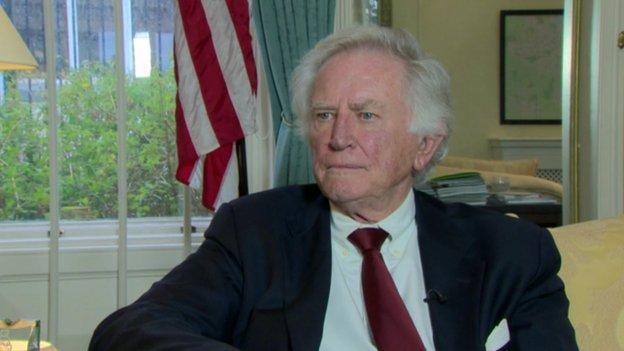
US envoy Gary Hart urged the parties to reach agreement
Earlier on Thursday, US envoy Gary Hart urged Northern Ireland's political parties to sort out the political deadlock over welfare reform.
He said that a deal would mean meetings planned for St Patrick's Day in Washington could go ahead.
It had been reported that First Minister Peter Robinson might pull out of the visit to meet President Obama in the wake of the latest Stormont crisis.
The first and deputy first ministers returned from the US on Thursday. Mr Robinson and Mr McGuinness were on a short visit for investment meetings.
At the start of this week, Sinn Féin withdrew support for welfare reform legislation.
The move has raised questions about the future of devolved government in Northern Ireland.

Analysis: Mark Devenport, BBC NI Political Editor
Talking to senior politicians around Stormont, we could have quite a few more months of the assembly and executive wandering around in a kind of zombie format.

The new budget that they have passed, even if it is fatally undermined by some of the assumptions that it was based on now being out the window, will still come into force at the turn of the financial year in early April.
It could blunder on at least until June which is the first monitoring round when the finance minister has to assess things. It may that, at that point, the internal contradictions will be so large that either the Treasury will have to step in or the finance minister will somehow throw in the towel.
At the moment, neither the first nor deputy first minister shows any sign of resigning so any notion of a snap election seems to have gone away a little.

On Wednesday, Sinn Féin released a 25-page dossier, external to explain why it had withdrawn support from the welfare reform bill.
It repeats the party's accusation that the DUP "acted in bad faith" during talks between the two parties on welfare reform implementation.
Sinn Féin said it had made it clear it wanted to provide full protection for current and future benefits claimants.
The DUP said there "wasn't the money in December and there is not the money in March" for what Sinn Féin wanted.
- Published11 March 2015
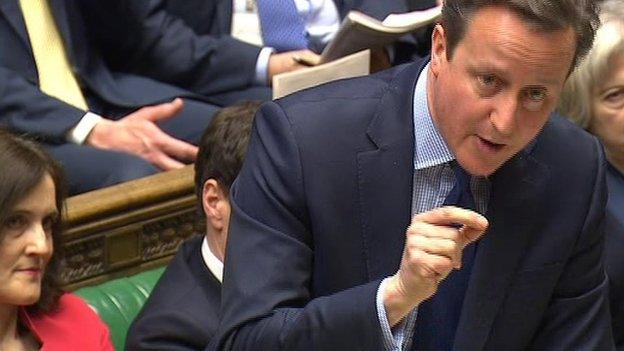
- Published11 March 2015
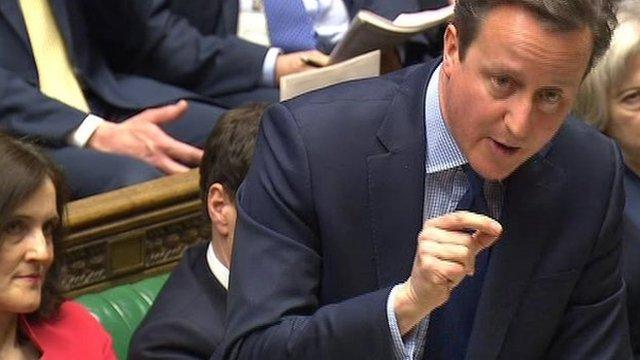
- Published10 March 2015
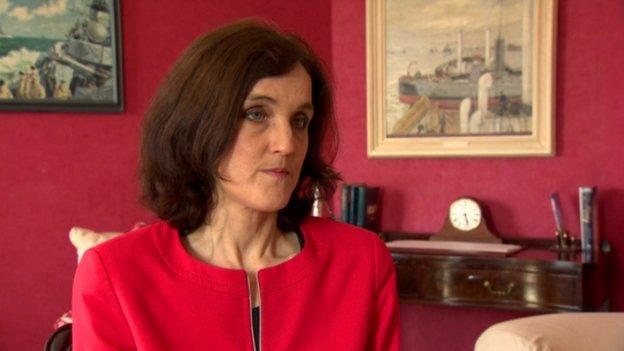
- Published9 March 2015
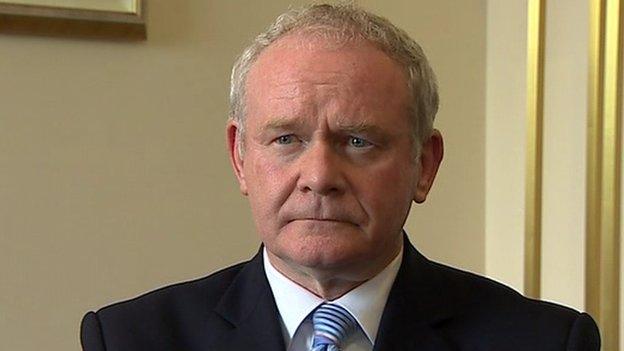
- Published9 March 2015
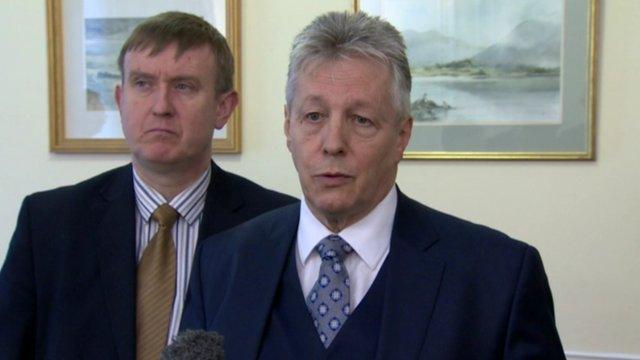
- Published9 March 2015
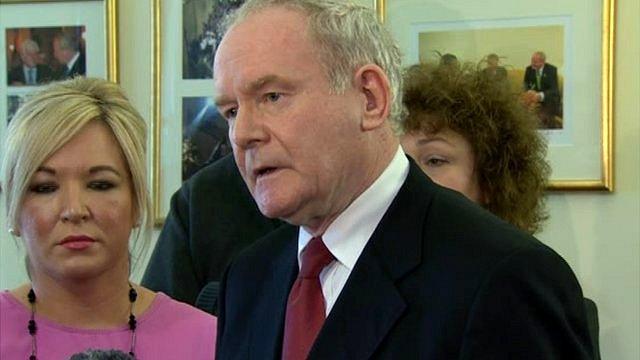
- Published9 March 2015
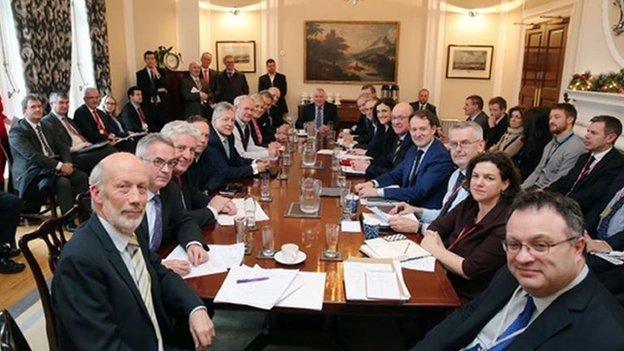
- Published9 March 2015
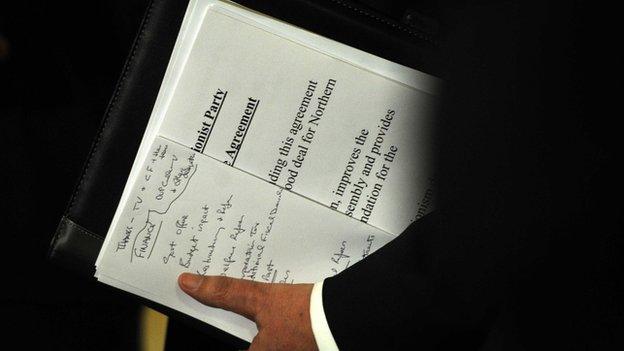
- Published23 December 2014

- Published19 December 2014
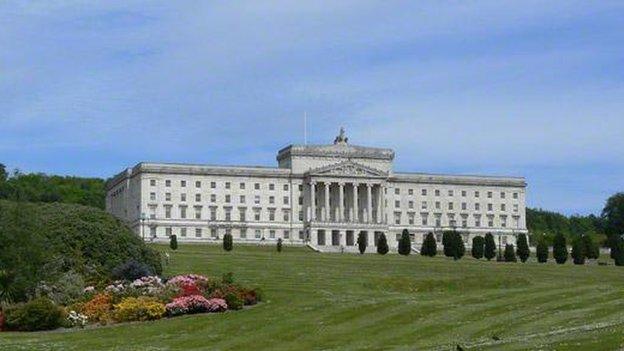
- Published12 December 2014
